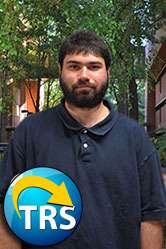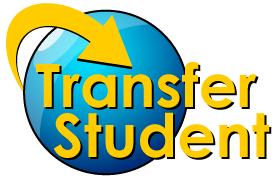Major: Physics and Mathematics
“Quantum Mechanics in Curved Spacetime”

 The equivalence principle is a basic postulate of Einstein’s theory of general relativity. It states that gravity causes all (small) free-falling objects to accelerate at the same rate, regardless of their constitution. Electrons are known to have a property called spin that causes them to behave as though they precess either clockwise or counterclockwise with respect to their direction of motion. Recent publications suggest that gravity causes electrons with different spins to fall at different rates. This would contradict Einstein’s equivalence principle. The main goal of this project is to investigate whether electrons with different spins fall at different rates in the presence of a gravitational field. I will work with Dr. Franson to develop a model of electrons falling in the presence of a gravitational field. This is relatively well-established. Then, I will numerically simulate electrons with different spins falling in a gravitational field. I am currently looking into using propagators to do this.
The equivalence principle is a basic postulate of Einstein’s theory of general relativity. It states that gravity causes all (small) free-falling objects to accelerate at the same rate, regardless of their constitution. Electrons are known to have a property called spin that causes them to behave as though they precess either clockwise or counterclockwise with respect to their direction of motion. Recent publications suggest that gravity causes electrons with different spins to fall at different rates. This would contradict Einstein’s equivalence principle. The main goal of this project is to investigate whether electrons with different spins fall at different rates in the presence of a gravitational field. I will work with Dr. Franson to develop a model of electrons falling in the presence of a gravitational field. This is relatively well-established. Then, I will numerically simulate electrons with different spins falling in a gravitational field. I am currently looking into using propagators to do this.
How did you find your mentor for your research?
I told my advisor my interests and asked him who in the physics department shared those interests. He told me my best bet was the professor that I am now working with.
How did you know this was the project you wanted to do?
I explained my interests and skill set to the professor I am now working with, and we discussed a possible research topic and the ways I could contribute. This particular project was a good fit for me because it satisfies my interests in the mathematics of curved spacetime and quantum field theory, and it makes use of my programming experience.
Is this your first independent research project?
No. I often spend my free time exploring my interests in the form of independent projects.
How did you hear about the Undergraduate Research Award (URA) program?
Since I spend so much time on independent projects, I had asked Janet McGlynn about ways I might get funding for one of them long before I applied for funding for the project I am working on today.
What academic background did you have before you applied for the URA?
I had spent a lot of time independently studying the subject I am now researching before applying for the URA. This included reading-both directed and undirected–and writing my own simulations of phenomena similar to the one that I am now investigating.
Was the application difficult to do?
Not particularly. There were plenty of opportunities for getting feedback from Janet McGlynn and the application itself was pretty straightforward anyway.
How much did your mentor help you with the application?
He mainly reviewed it for factual accuracy.
What has been the hardest part about your research?
There are only a few good introductions to the topic I am investigating, and each one seems to provide a different piece of the whole picture. The hardest part so far has been putting those pieces together.
What is your advice to other students about getting involved in research?
I have talked with a lot of friends about applying for research, and their biggest concern is consistently not feeling qualified. I have found applying for research to be like asking someone out on a date. You should be confident, and you should do it because of a genuine interest, not just for something to put on your resume. A lot of people ask for work in order to explore their interests, but I have found it best to explore your interests first. I only look for research on topics that I have explored on my own enough to conclude that I will stay interested, and in which I have enough background knowledge to be able to discuss possible research topics with a professor.
What are your career goals?
I am most interested in getting my PhD in physics and doing research in computational physics. There are several areas I could see myself specializing in. I am also open to going into industry after I graduate if I can find a job doing something in line with my interests.
Did you transfer to UMBC from another institution? Where?
I transferred from the University of Maryland at College Park.
9/25/2018